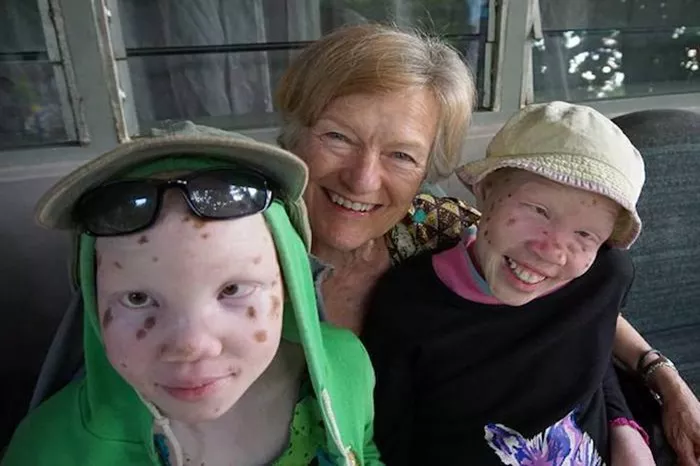In a significant initiative aimed at supporting persons living with albinism, 21 individuals from Transmara and Narok have recently undergone free skin screenings sponsored by the National Council of Persons Living with Disability. Conducted in Bomet town, the screenings focused on detecting premalignant lesions and managing various skin conditions through cryotherapy.
Reuben Mpatiany, Chairperson of the Narok Albinism Association, highlighted the benefits of the exercise, emphasizing that participants received treatment for dermatological issues and post-cryotherapy care. Addressing a commonly overlooked area, Mpatiany stressed the importance of adequate skin moisturization, particularly for the lips.
Moreover, attendees were counseled on the necessity of using protective gear and adopting appropriate dressing practices to safeguard against sun exposure. Mpatiany underscored the importance of self-monitoring among adults to detect skin changes early, thereby facilitating prompt intervention and reducing the risk of skin cancer. Early detection, he emphasized, significantly enhances treatment outcomes and survival rates.
Individuals exhibiting cancer symptoms were promptly referred to hospitals, while those with other skin complications received guidance on suitable skincare products. Mpatiany called upon parents, local chiefs, and community leaders to assist in identifying and registering persons with albinism with the NCPLWD. This registration, he noted, ensures access to government-supported protective gear, alleviating the financial burden associated with purchasing such equipment.
Highlighting additional benefits, Mpatiany pointed out that registered individuals are eligible for educational bursaries, vocational tools, economic empowerment programs, and job placements. He further urged the Narok County government to prioritize the hiring of dermatologists, citing the current reliance on private practitioners due to the absence of a dermatologist at Narok County Referral Hospital.
This concerted effort not only addresses immediate healthcare needs but also advocates for systemic support and inclusivity for persons living with albinism in the region.
Related topics:
Protect Yourself from Skin Cancer: Tips for Sun Safety
The New Era of Sunscreen: Skincare Brands Lead the Charge
Is Swimming Pool Water Bad For Skin And Hair?

